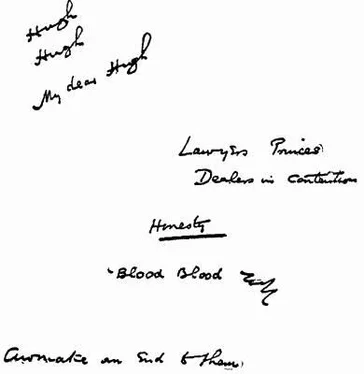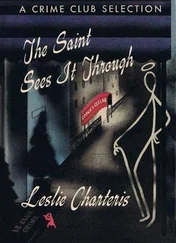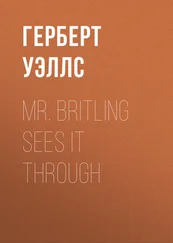Herbert Wells - Mr. Britling Sees It Through
Здесь есть возможность читать онлайн «Herbert Wells - Mr. Britling Sees It Through» весь текст электронной книги совершенно бесплатно (целиком полную версию без сокращений). В некоторых случаях можно слушать аудио, скачать через торрент в формате fb2 и присутствует краткое содержание. Жанр: Классическая проза, на английском языке. Описание произведения, (предисловие) а так же отзывы посетителей доступны на портале библиотеки ЛибКат.
- Название:Mr. Britling Sees It Through
- Автор:
- Жанр:
- Год:неизвестен
- ISBN:нет данных
- Рейтинг книги:4 / 5. Голосов: 1
-
Избранное:Добавить в избранное
- Отзывы:
-
Ваша оценка:
- 80
- 1
- 2
- 3
- 4
- 5
Mr. Britling Sees It Through: краткое содержание, описание и аннотация
Предлагаем к чтению аннотацию, описание, краткое содержание или предисловие (зависит от того, что написал сам автор книги «Mr. Britling Sees It Through»). Если вы не нашли необходимую информацию о книге — напишите в комментариях, мы постараемся отыскать её.
Mr. Britling Sees It Through — читать онлайн бесплатно полную книгу (весь текст) целиком
Ниже представлен текст книги, разбитый по страницам. Система сохранения места последней прочитанной страницы, позволяет с удобством читать онлайн бесплатно книгу «Mr. Britling Sees It Through», без необходимости каждый раз заново искать на чём Вы остановились. Поставьте закладку, и сможете в любой момент перейти на страницу, на которой закончили чтение.
Интервал:
Закладка:
§ 7
The battle of the Marne passed into the battle of the Aisne, and then the long lines of the struggle streamed north-westward until the British were back in Belgium failing to clutch Menin and then defending Ypres. The elation of September followed the bedazzlement and dismay of August into the chapter of forgotten moods; and Mr. Britling's sense of the magnitude, the weight and duration of this war beyond all wars, increased steadily. The feel of it was less and less a feeling of crisis and more and more a feeling of new conditions. It wasn't as it had seemed at first, the end of one human phase and the beginning of another; it was in itself a phase. It was a new way of living. And still he could find no real point of contact for himself with it all except the point of his pen. Only at his writing-desk, and more particularly at night, were the great presences of the conflict his. Yet he was always desiring some more personal and physical participation.
Hugh came along one day in October in an ill-fitting uniform, looking already coarser in fibre and with a nose scorched red by the autumnal sun. He said the life was rough, but it made him feel extraordinarily well; perhaps man was made to toil until he dropped asleep from exhaustion, to fast for ten or twelve hours and then eat like a wolf. He was acquiring a taste for Woodbine cigarettes, and a heady variety of mineral waters called Monsters. He feared promotion; he felt he could never take the high line with other human beings demanded of a corporal. He was still trying to read a little chemistry and crystallography, but it didn't "go with the life." In the scanty leisure of a recruit in training it was more agreeable to lie about and write doggerel verses and draw caricatures of the men in one's platoon. Invited to choose what he liked by his family, he demanded a large tuckbox such as he used to have at school, only " much larger," and a big tin of insect powder. It must be able to kill ticks....
When he had gone, the craving for a personal share in the nation's physical exertions became overpowering in Mr. Britling. He wanted, he felt, to "get his skin into it." He had decided that the volunteer movement was a hopeless one. The War Office, after a stout resistance to any volunteer movement at all, decided to recognise it in such a manner as to make it ridiculous. The volunteers were to have no officers and no uniforms that could be remotely mistaken for those of the regulars, so that in the event of an invasion the Germans would be able to tell what they had to deal with miles away. Wilkins found his conception of a whole nation, all enrolled, all listed and badged according to capacity, his dream of every one falling into place in one great voluntary national effort, treated as the childish dreaming of that most ignorant of all human types, a "novelist." Punch was delicately funny about him; he was represented as wearing a preposterous cocked hat of his own design, designing cocked hats for every one. Wilkins was told to "shut up" in a multitude of anonymous letters, and publicly and privately to "leave things to Kitchener." To bellow in loud clear tones "leave things to Kitchener," and to depart for the theatre or the river or an automobile tour, was felt very generally at that time to be the proper conduct for a patriot. There was a very general persuasion that to become a volunteer when one ought to be just modestly doing nothing at all, was in some obscure way a form of disloyalty....
So Mr. Britling was out of conceit with volunteering, and instead he went and was duly sworn and entrusted with the badge of a special constable. The duties of a special constable were chiefly not to understand what was going on in the military sphere, and to do what he was told in the way of watching and warding conceivably vulnerable points. He had also to be available in the event of civil disorder. Mr. Britling was provided with a truncheon and sent out to guard various culverts, bridges, and fords in the hilly country to the north-westward of Matching's Easy. It was never very clear to him what he would do if he found a motor-car full of armed enemies engaged in undermining a culvert, or treacherously deepening some strategic ford. He supposed he would either engage them in conversation, or hit them with his truncheon, or perhaps do both things simultaneously. But as he really did not believe for a moment that any human being was likely to tamper with the telegraphs, telephones, ways and appliances committed to his care, his uncertainty did not trouble him very much. He prowled the lonely lanes and paths in the darkness, and became better acquainted with a multitude of intriguing little cries and noises that came from the hedges and coverts at night. One night he rescued a young leveret from a stoat, who seemed more than half inclined to give him battle for its prey until he cowed and defeated it with the glare of his electric torch....
As he prowled the countryside under the great hemisphere of Essex sky, or leant against fences or sat drowsily upon gates or sheltered from wind and rain under ricks or sheds, he had much time for meditation, and his thoughts went down and down below his first surface impressions of the war. He thought no longer of the rights and wrongs of this particular conflict but of the underlying forces in mankind that made war possible; he planned no more ingenious treaties and conventions between the nations, and instead he faced the deeper riddles of essential evil and of conceivable changes in the heart of man. And the rain assailed him and thorns tore him, and the soaked soft meadows bogged and betrayed his wandering feet, and the little underworld of the hedges and ditches hissed and squealed in the darkness and pursued and fled, and devoured or were slain.
And one night in April he was perplexed by a commotion among the pheasants and a barking of distant dogs, and then to his great astonishment he heard noises like a distant firework display and saw something like a phantom yellowish fountain-pen in the sky far away to the east lit intermittently by a quivering search-light and going very swiftly. And after he had rubbed his eyes and looked again, he realised that he was looking at a Zeppelin—a Zeppelin flying Londonward over Essex.
And all that night was wonder....
§ 8
While Mr. Britling was trying to find his duty in the routine of a special constable, Mrs. Britling set to work with great energy to attend various classes and qualify herself for Red Cross work. And early in October came the great drive of the Germans towards Antwerp and the sea, the great drive that was apparently designed to reach Calais, and which swept before it multitudes of Flemish refugees. There was an exodus of all classes from Antwerp into Holland and England, and then a huge process of depopulation in Flanders and the Pas de Calais. This flood came to the eastern and southern parts of England and particularly to London, and there hastily improvised organisations distributed it to a number of local committees, each of which took a share of the refugees, hired and furnished unoccupied houses for the use of the penniless, and assisted those who had means into comfortable quarters. The Matching's Easy committee found itself with accommodation for sixty people, and with a miscellaneous bag of thirty individuals entrusted to its care, who had been part of the load of a little pirate steam-boat from Ostend. There were two Flemish peasant families, and the rest were more or less middle-class refugees from Antwerp. They were brought from the station to the Tithe barn at Claverings, and there distributed, under the personal supervision of Lady Homartyn and her agent, among those who were prepared for their entertainment. There was something like competition among the would-be hosts; everybody was glad of the chance of "doing something," and anxious to show these Belgians what England thought of their plucky little country. Mr. Britling was proud to lead off a Mr. Van der Pant, a neat little bearded man in a black tail-coat, a black bowler hat, and a knitted muffler, with a large rucksack and a conspicuously foreign-looking bicycle, to the hospitalities of Dower House. Mr. Van der Pant had escaped from Antwerp at the eleventh hour, he had caught a severe cold and, it would seem, lost his wife and family in the process; he had much to tell Mr. Britling, and in his zeal to tell it he did not at once discover that though Mr. Britling knew French quite well he did not know it very rapidly.
Читать дальшеИнтервал:
Закладка:
Похожие книги на «Mr. Britling Sees It Through»
Представляем Вашему вниманию похожие книги на «Mr. Britling Sees It Through» списком для выбора. Мы отобрали схожую по названию и смыслу литературу в надежде предоставить читателям больше вариантов отыскать новые, интересные, ещё непрочитанные произведения.
Обсуждение, отзывы о книге «Mr. Britling Sees It Through» и просто собственные мнения читателей. Оставьте ваши комментарии, напишите, что Вы думаете о произведении, его смысле или главных героях. Укажите что конкретно понравилось, а что нет, и почему Вы так считаете.






